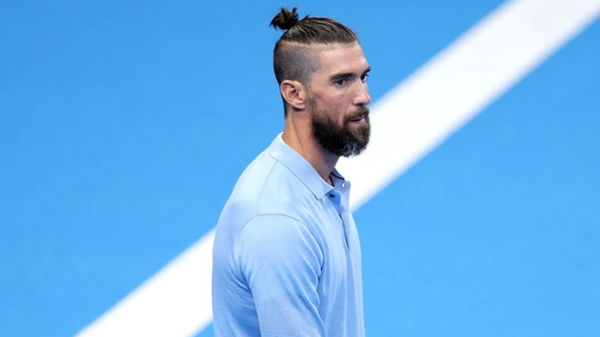

Michael Phelps, the most decorated Olympian of all time, didn’t hold back when it came to the U.S. men’s swimming performance at the 2024 Paris Olympics. With only one individual gold medal and a total of nine medals, it just didn’t live up to his expectations. At that time Phelps admitted, “For me, as a whole, I was pretty disappointed to see the U.S. swimming results,” Phelps said. “Obviously, there were a few standout swims. And those you have to recognize.” Although he acknowledged a few performances with due credit he was not entirely satisfied with the team’s overall performance.
Weeks have passed since then. The aftermath lingers on as the head of the National Team, at USA Swimming announced their resignation recently. Further stoking the discontent following the Olympics. It feels like the team’s results are prompting larger discussions and transformations, within the organization’s setup. It appears that American swimming needs to reflect on its direction and make some assessments.
ADVERTISEMENT
Article continues below this ad

It looks like the anticipated changes will be in full effect by the 2028 Los Angeles Games. Coaches and programs had long been advocating for a new direction. However, as often happens, expressing what you believe doesn’t always translate into immediate change. On, 29th August it was announced, that Tim Hinchey, President and CEO of USA Swimming will step down, while Lindsay Mintenko, National Team Managing Director will most probably be considered for her position.
The tides have shifted dramatically for USA Swimming following the 2024 Paris Olympics, where the once-dominant American squad barely edged out Australia on the medal table. What once seemed like an unstoppable force now faces serious questions about its future. The narrow win exposed vulnerabilities, and the fallout has been swift. The pressure to reclaim U.S. dominance in the pool has mounted to a fever pitch, with top coaches and former Olympians calling for change—and change has arrived. On September 7th, the game was truly shaken.
Breaking news: Lindsay Mintenko, the powerhouse behind many of the U.S. National Team’s successes, has resigned following the shocking departure of CEO Tim Hinchey. Mintenko’s exit sent shockwaves through the swimming community, signaling that USA Swimming’s leadership is in full overhaul mode. After the slim victory over Australia in Paris, the urgency to rebuild before the 2028 Los Angeles Olympics has never been more intense.
USA Swimming’s revival strategy to turn the corner for 2028
With the clock ticking toward the LA Games, where swimming will take center stage, USA Swimming finds itself at a crossroads. For the first time since the 1988 Seoul Olympics, the U.S. failed to secure double-digit golds, a staggering fall from grace. This year’s 28 total medals marked a dip below 30 for the first time since 2004, signaling a crisis that demands immediate action.
The men’s team, once the bedrock of American swimming, stumbled in Paris. For the first time in history, the U.S. didn’t claim gold in the iconic 400 medley relay, and the streak of individual golds nearly ended after a 120-year run. Yet amidst the struggles, Bobby Finke shone brightly, breaking a 12-year-old world record in the 1500 freestyle to claim the only individual gold for the U.S. men’s team. Alongside Finke, standouts like Carson Foster, Nic Fink, Luke Hobson, and Ryan Murphy helped salvage a mere nine medals for the men’s team—far from the domination fans have come to expect.
ADVERTISEMENT
Article continues below this ad

ADVERTISEMENT
Article continues below this ad
On the women’s side, however, the story was different. The women’s team dominated, bringing home 18 medals and coming close in several others, including a world-record victory in the 400-medley relay. But despite their brilliance, the overall inconsistency across the entire U.S. roster revealed deeper cracks in the system.
Now, with Hinchey and Mintenko’s departures, USA Swimming faces a critical leadership vacuum. Many are calling for a renewed focus on coaching, athlete development, and strategy to regain their top spot by 2028. Will this shake-up be the catalyst for a resurgence, or will the pressure continue to mount as the world catches up? One thing is certain: the race for U.S. swimming supremacy is on, and the stakes have never been higher.
Have something to say?
Let the world know your perspective.
ADVERTISEMENT
ADVERTISEMENT
ADVERTISEMENT
ADVERTISEMENT



What’s your perspective on:
Michael Phelps called them out—will these changes make a real difference in USA Swimming's future?
Have an interesting take?